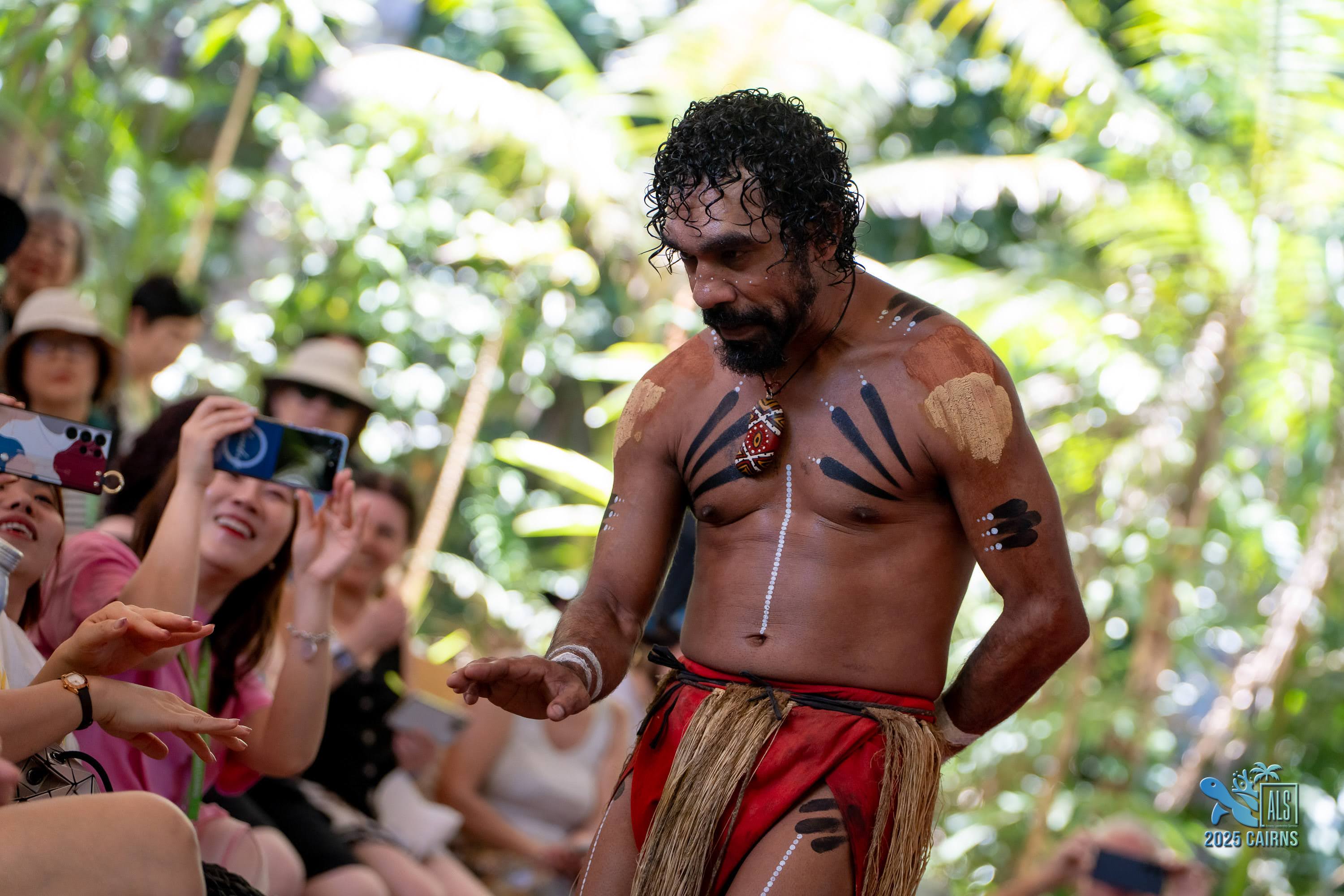From flight delays to inclement weather, worrisome corporate news to political instability, corporate events are susceptible to a large number of unforeseen issues that can affect the logistics as well as the atmosphere of an event.
For all the planning, check lists, organisation, communication and double-checking that go into coordinating a successful event, “unfortunately, there is always the possibility of last-minute changes, power outages and the big one for resort-based events: the weather,” explains Eileen Zhong, Ritz-Carlton Sanya’s director of conference and catering services.

While some snags in the fabric require a plan B, others are simply a matter of careful planning. Kimberly Jeker, account director for MCI Hong Kong, says that tackling the potential for problems from the outset is key in addressing possible problems.
“There are a large number of things that we have to think about in advance in terms of what could happen and what our solution to dealing with it would be,” she says.

Her colleague, Michele Sanvictores, director of external relations, MCI, adds: “The overall theme from the beginning [for MCI] is communication right from the start. Do not wait until the event is near, you must dedicate time during the preparation stages to ensure everyone is clear about emergency situations and how they might be handled, what the options are and what is expected. Even before the contracts are signed, we will make it clear to our prospective clients that safety and security is our priority.”
While event planners can view floor plans, taste sample menus, and ask about accommodations and meetings facilities, there is more to venue selection for an event when looking at it from the perspective of avoiding potential disasters. Particularly in Asia, factors like political stability and government whim must be taken into account.
Exotic and historic destinations may seem like a good idea at the time, but they can present last-minute problems as well.
Ben Taylor, senior vice-president and managing director, Asia, Jack Morton Worldwide explains: “The type of crisis management we generally encounter is venue cancellation, particularly in China. Whilst clients desire to hold their events in venues of historic or of political importance, the availability of these can be quite volatile.”
Fendi was able to host a fashion show on the Great Wall of China in 2007, but other groups have been refused when looking to host corporate events, or other times been given very little notice that they must choose a new venue.
“Although contracts might be signed,” he continues, “we have encountered situations where governments have decided that the venues cannot be used at the very last minute. In one instance – and this has now happened on three separate occasions – we were given 48 hours notice to relocate an event for 3,000 delegates from a major global company.”
For many companies, this would result in a postponement of the event. However, says Taylor, “the trick is in the contingency planning”.
“In this instance we had pre-empted the government’s decision and had put a back-up venue on hold. [We] quickly rearranged the logistics and production infrastructure to enable us to execute in the back-up venue without compromising the timing or quality of delivery.”
He notes that the firm has also encountered situations in which a destination has suddenly become unstable due to political unrest. Event planners should certainly do their research on locations, and if the history of the political or social machine is particularly volatile, then take heed.
“This [situation] arose last September when we were due to deliver a major event in Bangkok,” explains Taylor. The firm went from acting as an event producer and organiser “to helping the client assess the risk and implement measures to minimise potential risk to the attendees. We also became responsible for communicating the changes and measures to attendees and ensuring that contingencies were set up in case the situation worsened.”
In addition to political considerations, changes in the group or company can also affect the viability of a particular venue.
Sanvictores notes that in working with congresses and assemblies, “we sign contracts three to four years early, and sometimes you come into a situation where in that time period the group has become much larger. As soon as this comes up, you have to be looking at safety, hazards and emergency situations in light of having a larger group.”
Generally, working with the venue results in creative solutions, but a standard check list of health and safety guidelines is a key reference point to ensure the success of a growing event invite list.
Even with weather reports, Google Earth and the local weather forecasters, there’s nothing more unpredictable than Mother Nature, and when planning an outdoor event, nothing is more dreaded than a rainstorm. Peggy Lau at Pacific World Hong Kong insists: “If you are having an outdoor event, always have a plan B.”
The Ritz-Carlton Sanya, with its sprawling gardens, poolside verandahs and expansive beach has held outdoor events for a number of companies, including global brands such as Mercedes-Benz. “Actually,” explains Steve Chen, the property’s assistant food and beverage director, banquet, “we won’t take a new booking for an outdoor event without an alternative indoor plan. We communicate with the client in advance as both plans are equally important to the success of the event at the end of the day.” Everything from procedures, floor plans and staff arrangements for service and catering is arranged.
Explains the Ritz-Carlton’s Zhong: “We also recommend having a tent over the party to keep rain out [if there is a chance of light rain].” She says that leading up to the event, “weather forecasts are checked on a daily basis, and then hourly closer to the event”.
But even then there can be surprises. Lau tells Mix: “Many years ago, there was a hotel function awards presentation we arranged in Pattaya, a place where the rain just comes without any notice. We had arranged the event inside, so when all of a sudden there was a massive thunderstorm, we thought it would be fine.”
Unfortunately, the storm was violent enough to cut off the power to the hotel. Instead of cancelling the evening, Lau and her team rounded up candles and for the next 30 minutes delegates ate and chatted over candlelight until the power came back on.
Quick thinking is the only way to react to inclement weather, says the team at the Ritz. In one instance, the weather forecast changed quickly, forcing an outdoor event to move indoors. In the meantime, the ballroom had been booked for a meeting, which left the team only three hours to break down and set up once the meeting had finished. Chen and Zhong say that with communication and teamwork, not only was every detail of plan B in place on time, but a run through with the new A/V set up 30 minutes prior to the opening of the doors went off without a hitch.
“When it comes to outdoor events,” says Zhong, “if there is a power failure, most of our setup is already running on batteries and by the light of tiki torches to brighten the dinner experience anyway. But we do have a generator as well.”
Antony McNeil, the Ritz-Carlton’s executive chef, and his team are well-versed in the contingency plans and can bring the outdoor experience inside if rain, storm or thunder threatens to kill the mood.
Flight delays, traffic jams or a speaker who was late getting out of bed can wreak havoc on a conference schedule, but there are ways to ensure the show goes on, on time. Lau says that in the case of flight delays, event agencies often have relationships with airlines and can either shuffle delegates on alternative flights, or in the case of weather-related delays, offer a 24-hour service hotline into the airline to get the most up-to-date information direct from the source.
Adds MCI’s Jeker: “Many things can cause delays. When this happens, again communication is important. We ensure the comfort of delegates who may have been delayed and inform the ground team at the destination all pertinent details. We ensure expectations are aligned when schedules are changed. As an example, we will work to communicate with a hotel that a guest has had a delay to avoid a charge for non-appearance.”
She notes that in terms of missed time in seminars, meeting minutes and simply mingling and socialising with other delegates will make up the content over the course of the event.
The delay of important speakers is not as easy, however, as having the CEO or keynote address live is integral to the overall experience. But, in a pinch, stand-ins and the joys of modern technology can be an event planner’s best friend. “People are always able to get another person last minute locally,” Lau says.
“If the speaker is coming in from overseas and you have to fly them in, then [generally a flight delay or the inability to get to the event] gives you at least 12 hours to find someone else in town.”
And, with nearly all event venues, hotels and conference facilities boasting state-of-the-art A/V equipment, teleconference and videoconference systems can be set up to host live streaming according to schedule. “If it’s just that someone is arriving late,” says Jeker, “we’ll make a last-minute change to the programme to accommodate them. But, if your only option is a videoconferencing system, it’s a very good plan B.”
Especially in today’s difficult business climate, inevitably delegates will be discussing layoffs, earnings results and the future of the company. Whether the situation is a knock-on effect of the economic crisis or a singular event tarnishing the company or one of its executives, events that occur around the same time have to address issues carefully.
Rob Campbell, managing partner and strategist at Sunshine, a creative brand-planning company, has worked with a whole host of international brands during difficult times and always advises a human approach when dealing with sensitive situations. “The question seems to always be, do you keep your head down until it’s over or do you take it head on?,” he says.
“If the situation is handled with empathy and understanding, your employees or clients – or whomever you are addressing – walk away with a greater appreciation of the situation and the reasons behind the actions. It doesn’t mean they’ll be happy, but it acknowledges the fact that to them it is never ‘just business’, it’s always personal.”
But he notes: “You have to choose the right person to address [the issue], someone who demonstrates what they are saying and who appreciates what is going on and offers solutions. That pays longer-term dividends.”
Certain events are more suited to this than others, explains Lau. “From the PR angle, if you get bad news, you still always have to be positive. Even with bad news, you can’t let people become negative.”
And while no event needs to become a complete downer, honesty and empathy in difficult times may put to rest issues that had previously not been addressed, and in some cases, motivate those in attendance to follow through with the company plans for the future.
“I think the difference is,” Campbell explains, “that it’s about a psychological approach as opposed to a purely business approach. Those who appreciate human needs, wants and concerns are better positioned to unite [delegates] around a common goal. And you need people to believe in you – especially if there have been layoffs, you need those who remain to still believe in the company.”
Time, money, energy and schedules have to come together perfectly in the planning of any event – and the idea of redoing all of that is often unthinkable. It is also unavoidable in most circumstances, even those that seem insurmountable. Outlining the potential problems, creating contingency plans, having a backup blueprint for the event in place and ready to go, and remaining alert for any changes is always the best prevention, however, in the moment, quick thinking and an innovative approach to problem solving can often save the day.
CONSIDER THIS
• Outdoor events require an indoor Plan B
• Political and government instability, especially in some Asian countries can derail your plans
• Company/organisation growth between contract signing of the venue and the event date can alter venue and accommodation choice
• Transportation logistics need to take into account possible delays
• Technology may be needed to link in out-of-town speakers or delegates
• Corporate communications and clear messaging has to be planned if dealing with bad news
• Event team knowledge of fire escape and emergency routes is essential
• Insurance and contingency plans and/or cancellation policies need to be clear
CASE IN POINT: DISASTER STRIKES
In 2005, MCI organised a 700-person five-day event for an international transport association in Cairo, Egypt. The day before the annual event was to start, the infamous Sharm El Sheikh bombings took place, including one bomb in a tourist area next door to the meeting’s hotel venue. For many, this would be a deal-breaker, but with quick thinking, resourcefulness and above all communication, MCI met with all relevant event and government parties to ensure the safety delegates and the viability of the event.
Explains Michele Sanvictores, director of external relations, MCI: “We immediately held a meeting with the association’s board of directors, the hotel staff and our team to decide whether this was a case of postponing the event, whether we should move the event inside, and what could and should be done for the safety of the delegates. In this situation, the tourism authority of Egypt also got involved, agreeing to beef up security, to have extra police and to take certain security measures so that the event could be held as originally had been planned.”
Those meetings paid off and the event took place as planned. One important aspect of the decision was communication with delegates, which MCI and the hotel were proactive about from the first moment, says Sanvictores.
“We were able to use the CCTV systems throughout the hotel as a method of communication, explaining to the delegates what was happening, the steps that were being taken, and how the event would be organised in light of the setback. Because of that, they were informed and no longer felt fearful. Once we were able to confirm that security was in place and that the tourism authority was behind the event, everyone felt comfortable attending.”


